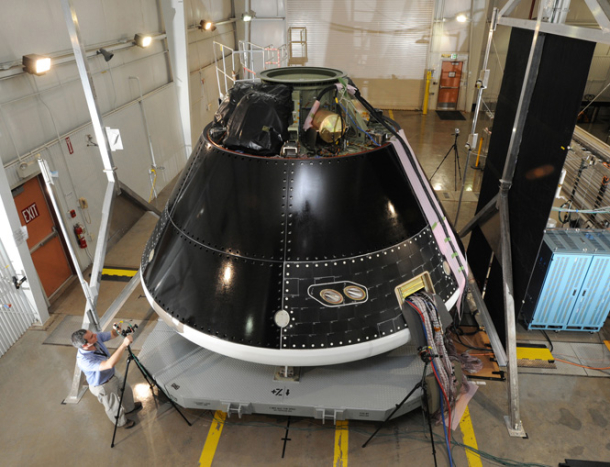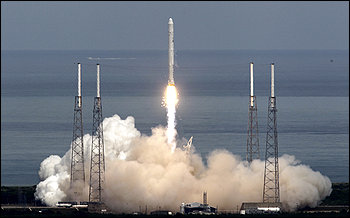
“Douglas Cooke, associate administrator of NASA’s Exploration Systems Mission Directorate, told reporters the Orion concept, described by former NASA Administrator Mike Griffin as ‘Apollo on steroids,’ is the most capable spacecraft currently on the drawing board for meeting the Obama administration’s ‘flexible path’ approach to deep space exploration.“
With the Space Shuttle nearing its end, NASA unveils the prototype for their new deep space exploration vehicle, Lockheed’s Multi-Purpose Crew Vehicle (MPCV), and, well, it’s a throwback alright. “As currently envisioned, the MPCV would support four astronauts on short-duration flights of less than 21 days. For longer missions to asteroids or even Mars, the capsules would dock with a larger spacecraft of some sort that would provide more room for the crew while in transit.” “Of some sort”? So far at least, I am underwhelmed.





